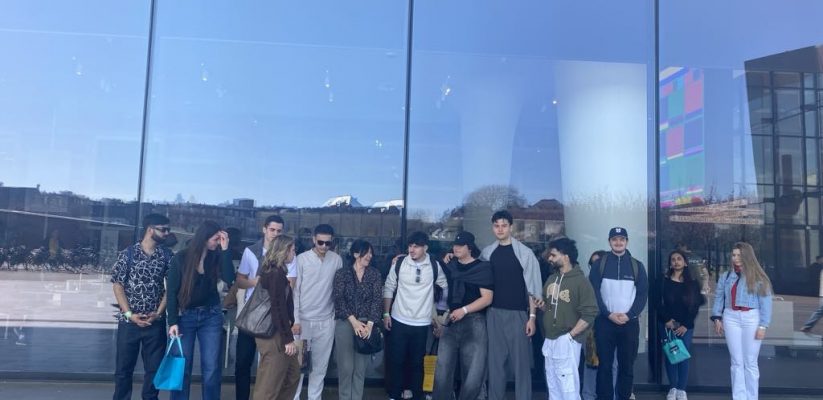“Learning about the sustainability of Amsterdam was integral as sustainability is a big part of our business management course, helping us connect the dots on how sustainable economies are growing and how they develop”
– Student, Business Management BA
Twenty-one students from the Business Management BA Honours course participated in a four-day sustainability trip to Amsterdam, which offered students a unique perspective on real-world sustainable practices that they can apply in their future studies and careers.
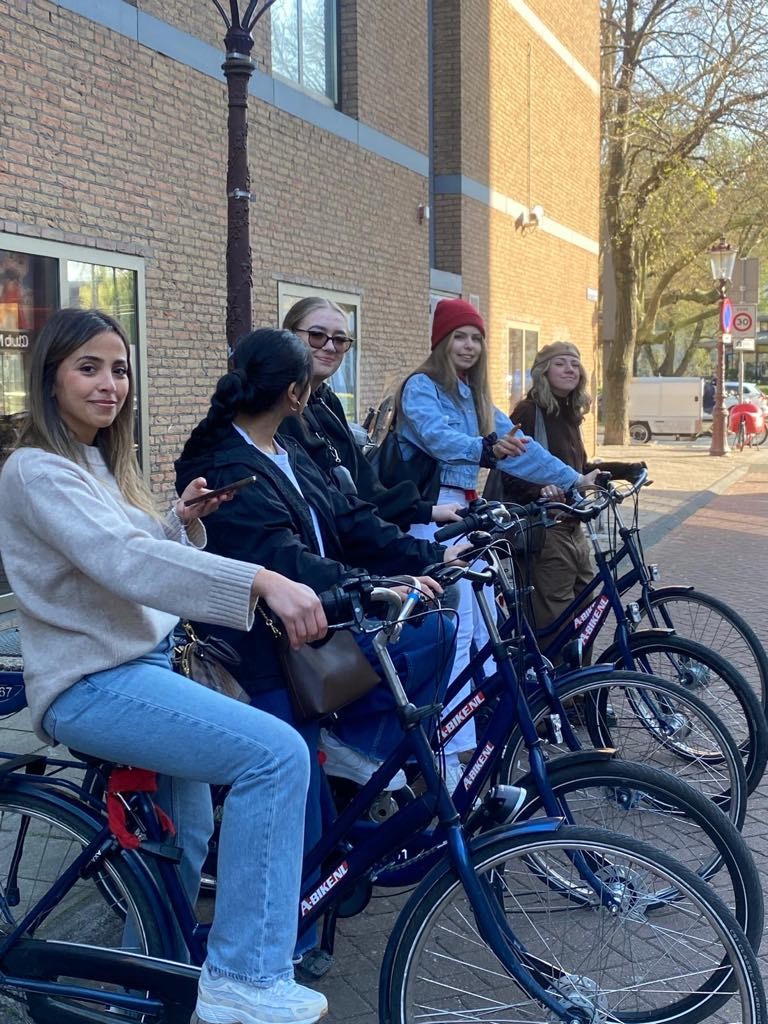
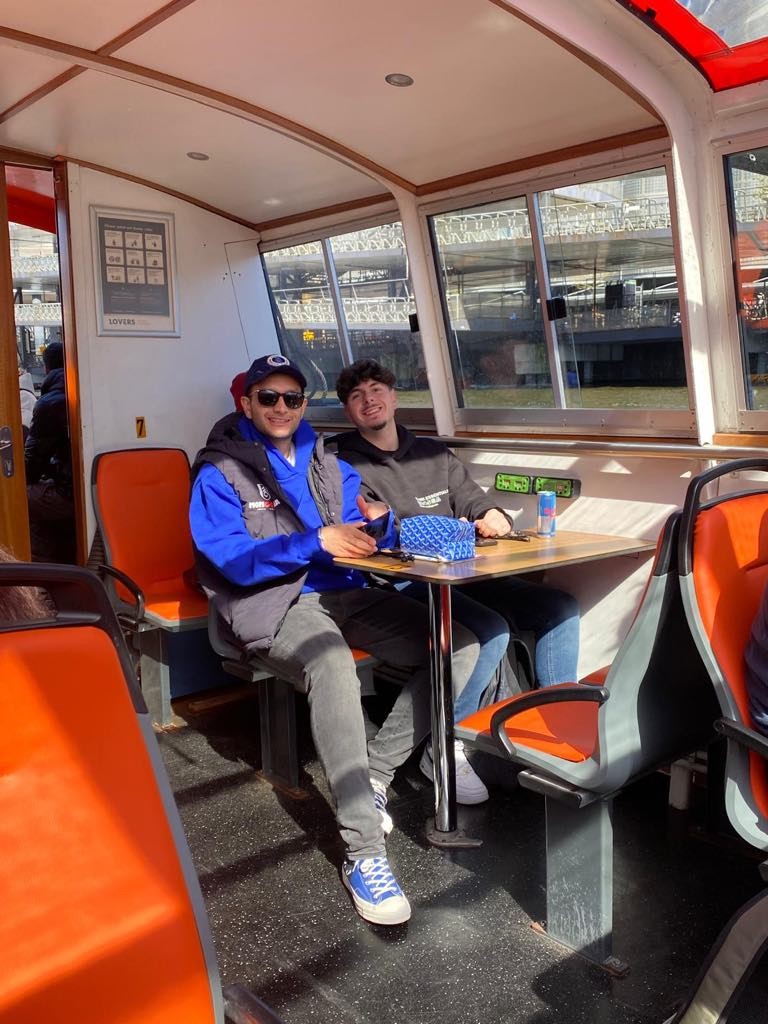

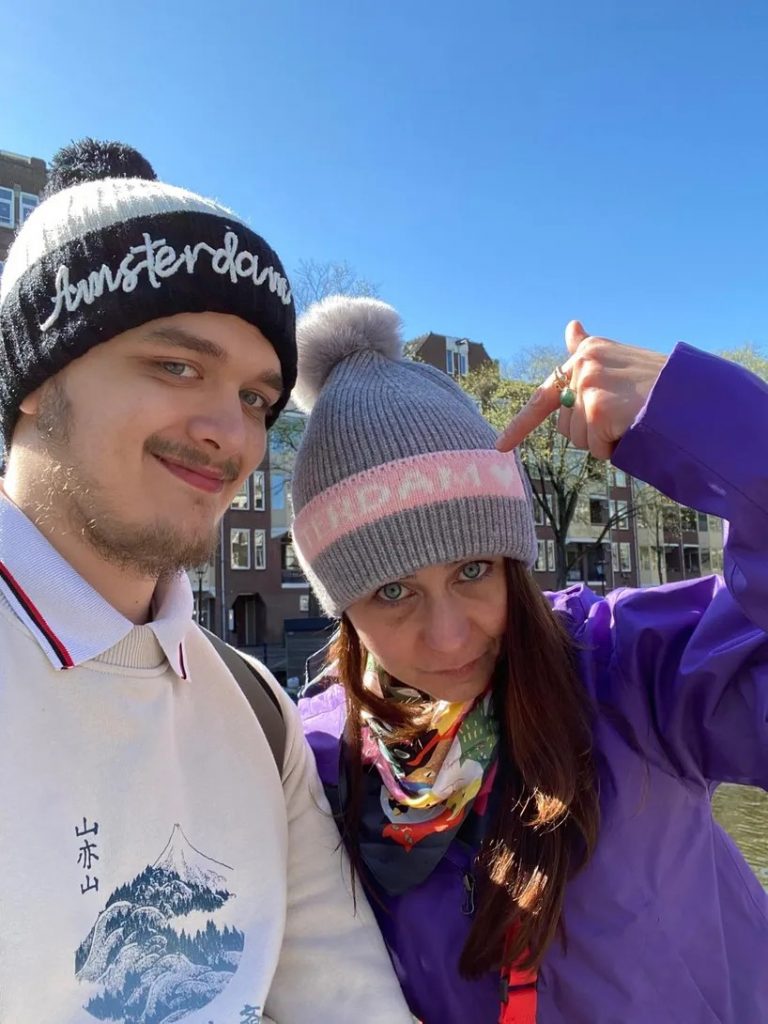

Amsterdam is ranked number 1 in the Arcadis Sustainable Cities Index (2024), a global ranking that assesses the sustainability performance of 100 cities worldwide. The index evaluates urban resilience and progress across four key metrics: People, Planet, Profit, and Progress. Amsterdam’s achievement reflects its deep-rooted commitment to advancing the United Nations Sustainable Development Goals (SDGs), making it an ideal location for experiential learning in sustainability, governance, and community development.
As part of our Business Management BA course’s ongoing commitment to embedding sustainability into business education, a group of students recently travelled to Amsterdam on a field trip designed to explore sustainability in action. Organised and led by course leaders, Beverley Marsland and Dr Setenay Dilek Fidler, with support from Rachel Lander, Assistant Head of School at the School of Management and Marketing, the visit brought academic theory to life through immersive, real-world experiences.
Taking place from across from the 3rd to 6th April, the trip served as a living case study aligned with several UN SDGs:
- SDG 4: Quality Education
- SDG 11: Sustainable Cities and Communities
- SDG 13: Climate Action
- SDG 16: Peace, Justice and Strong Institutions
Students began their visit with a guided walking tour of the UNESCO-listed canal ring, gaining insights into the engineering and architectural innovations that helped shape modern Amsterdam. They saw first-hand how sustainability challenges such as subsidence are being tackled, as the city works to preserve its iconic merchant houses from sinking into the historic waterways.
On the Amstel walking tour, students engaged with a deeper narrative of the city’s social history. Street art installations and poignant memorials commemorated Jewish families displaced during WWII, while symbolic bridges traced the path of both occupation and liberation. These moments connected historical justice and reconciliation to the wider theme of SDG 16: Peace, Justice and Strong Institutions.
Amsterdam’s world-renowned cycling infrastructure became a focal point during the trip. Students joined a guided cycle tour through parts of the city’s 515km of cycle paths and green spaces, learning how cycling has been embedded into city planning for decades. The tour highlighted how policy, community engagement, and environmental strategy converge to reduce carbon emissions and promote a healthier urban lifestyle—key to SDG 11 and SDG 13.
The itinerary also included visits to the Van Gogh Museum and Stedelijk Museum of Contemporary Art, where students explored how culture and creativity contribute to both economic vitality and community identity—underscoring the ‘People’ dimension of the Arcadis index.
Another powerful moment came with the visit to National Monument Kamp Vught, a former Nazi transit and labour camp that has been preserved as a site of historical education and reflection. The visit deepened students’ understanding of institutional justice and human rights, themes that continue to resonate in both global business ethics and public governance.
The trip concluded with a canal tour through Amsterdam’s historic waterways, offering a final opportunity to view the city through the lens of sustainable tourism, heritage preservation, and forward-thinking urban design.
“The cycle tour had a fantastic guide who shared many engaging facts and insights on the evolution of Amsterdam, from the past to the present. As an avid cyclist, I found it very different from cycling in the UK. I loved every second of it!”
– Jamie Gowers
(Student)
“We had the chance to visit
the world-renowned Van Gogh Museum, gaining deeper insight into the life and
work of one of the most influential artists in history and enjoyed a scenic
canal boat tour that offered a unique perspective of the city’s historic waterways”
– Juste Sadaunikaite
(Student)
“My favourite activity was the bike tour of Vondelpark in Amsterdam. The tour focused mainly on the culture and infrastructure of the city, but our guide also went in depth on the subject.”
– Helen Chesterman
(Student)
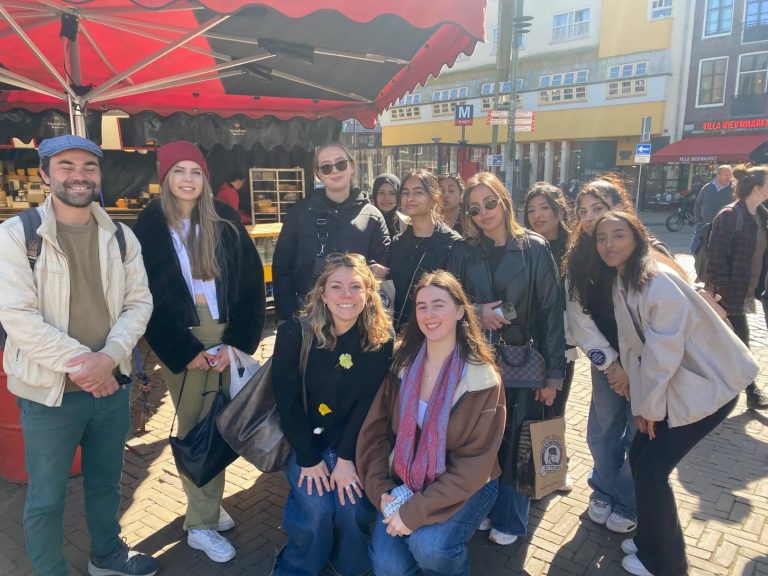
“The Business Management BA course embeds SDG education into our curriculum. Field trips are education in action – real world engagement with environmental and social sustainability. In Amsterdam, we experienced firsthand how sustainability is integrated into daily life—particularly through green mobility solutions. Our journey also included contemplation of social sustainability concerns, as we learned about Amsterdam’s Nazi occupation during WWII and the tragic deportation and murder of hundreds of thousands of Jewish citizens under German occupation.”
– Beverley Marsland (Course Leader)
“We saw our students grow in so many ways—not just in their understanding of sustainability, but in how they worked together, supported one another, and stepped out of their comfort zones. They built confidence and developed teamwork and leadership skills. The trip brought us all closer, creating stronger bonds and a truly supportive learning community beyond the classroom.”
– Dr Setenay Dilek Fidler (Course Leader)
“This is the second year the School has been able to offer additional sustainable business themed field trips to students. Our feedback shows these are seen as a valuable contribution to giving students an excellent experience on our BA Business Management Course.”
– Rachel Lander (Assistant Head of School)
Find out what some of our students had to say about the trip: Noor Ghumran, Kevin Meireles and Benyamin Davari Shalamzari.
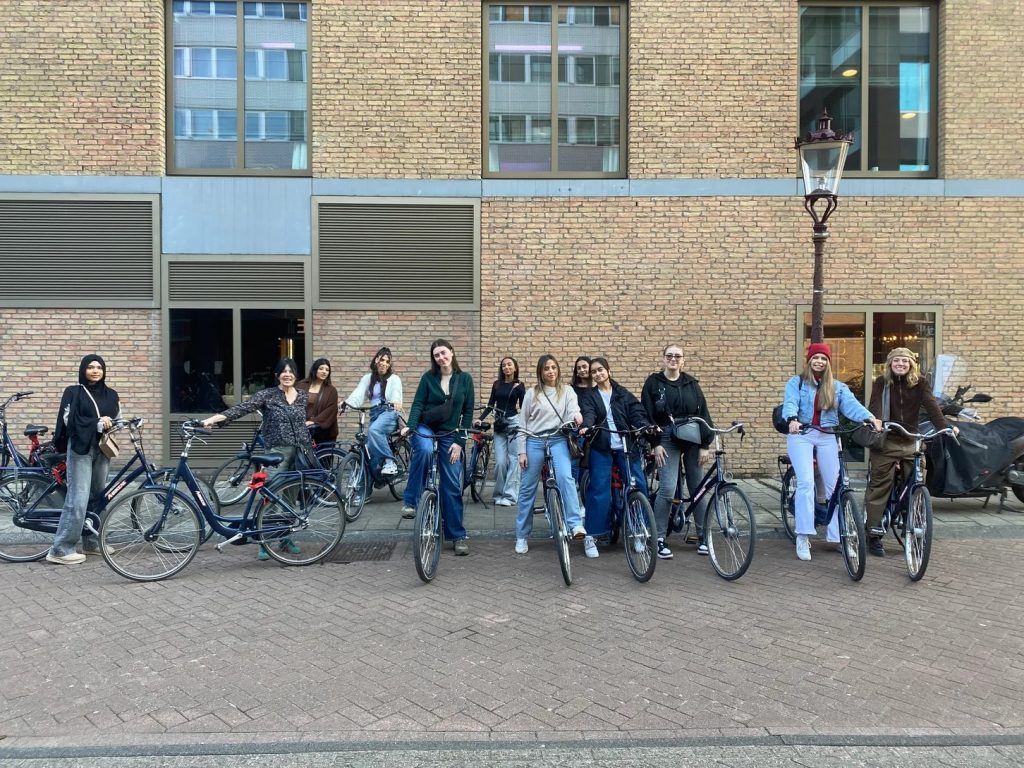
- How Portfolio-Based Assessment Is Transforming Digital Marketing Education - December 11, 2025
- January vs September: Finding the Right Postgraduate Start at Westminster - December 9, 2025
- Inside the Financial Times: Westminster Business School Students Explore Modern Journalism - October 13, 2025
